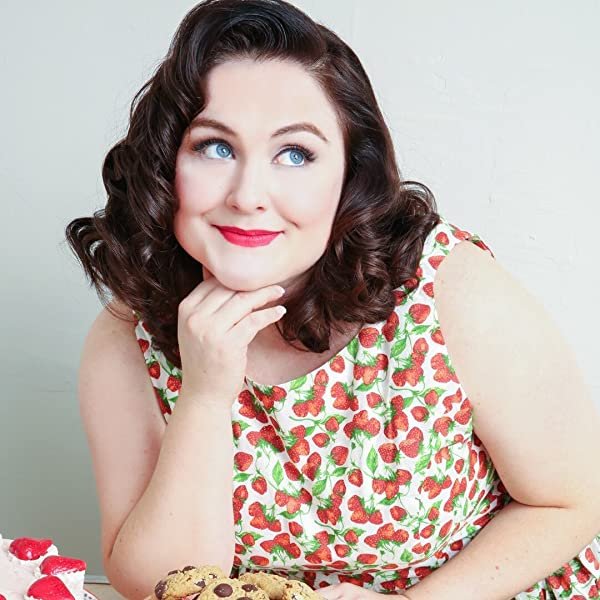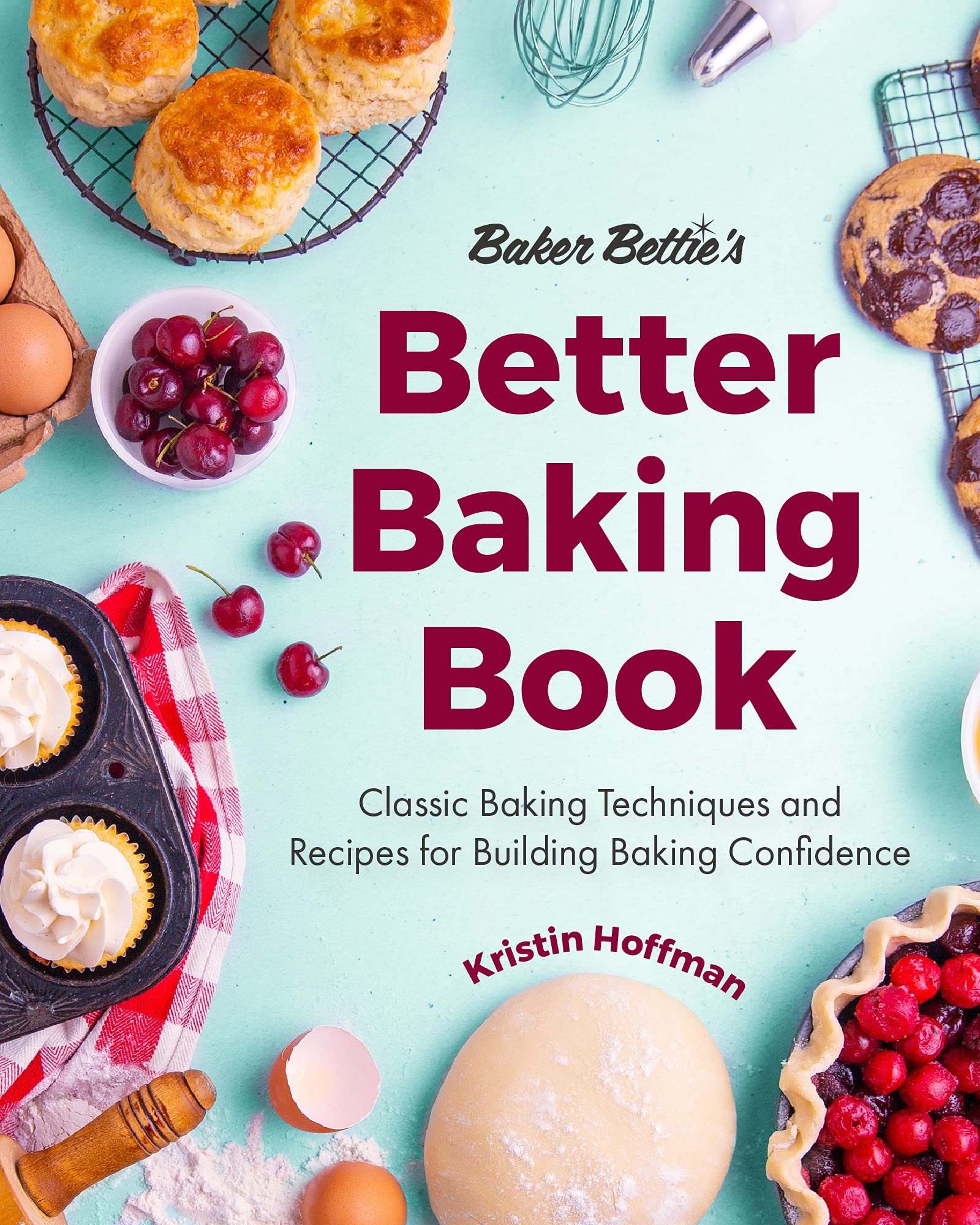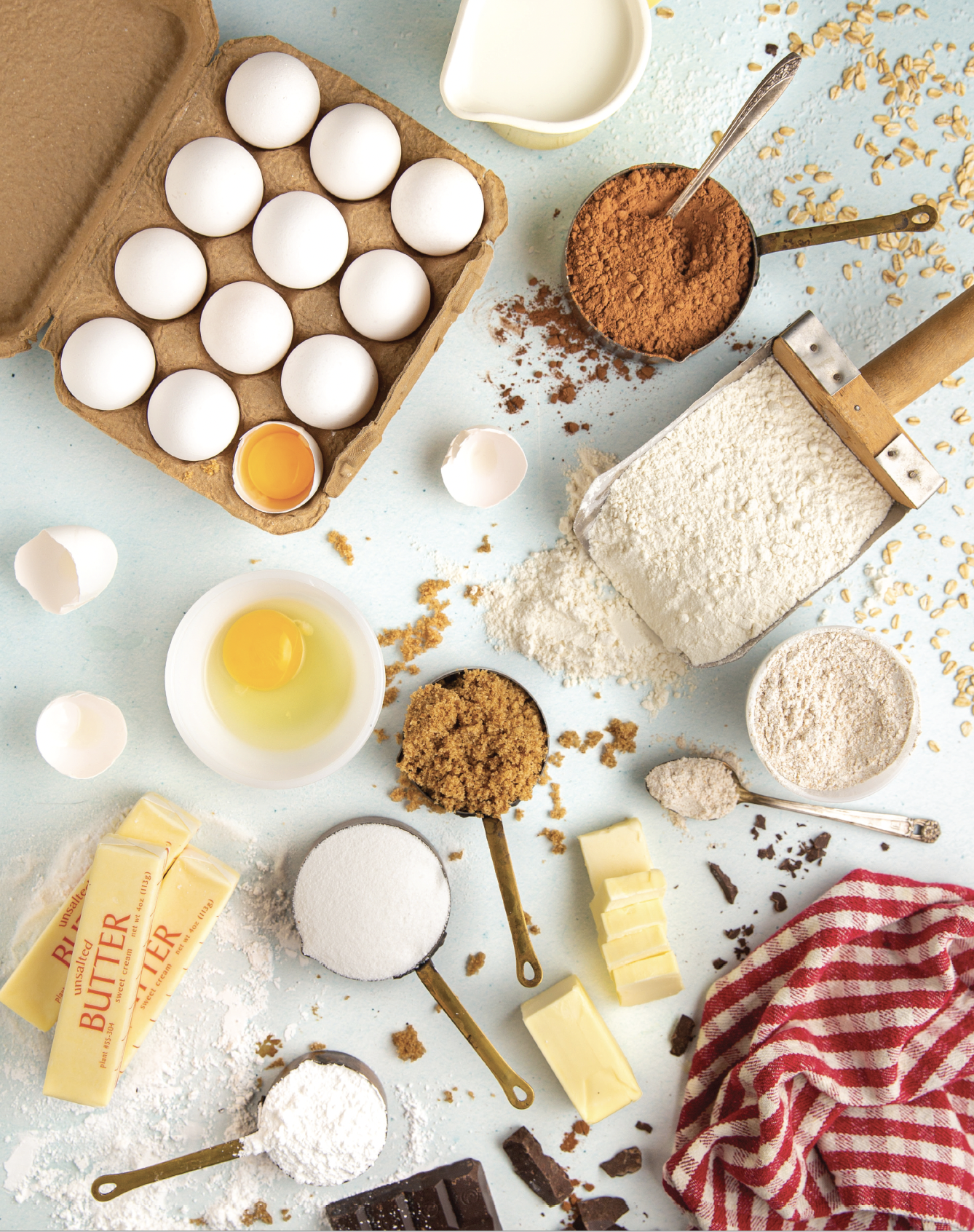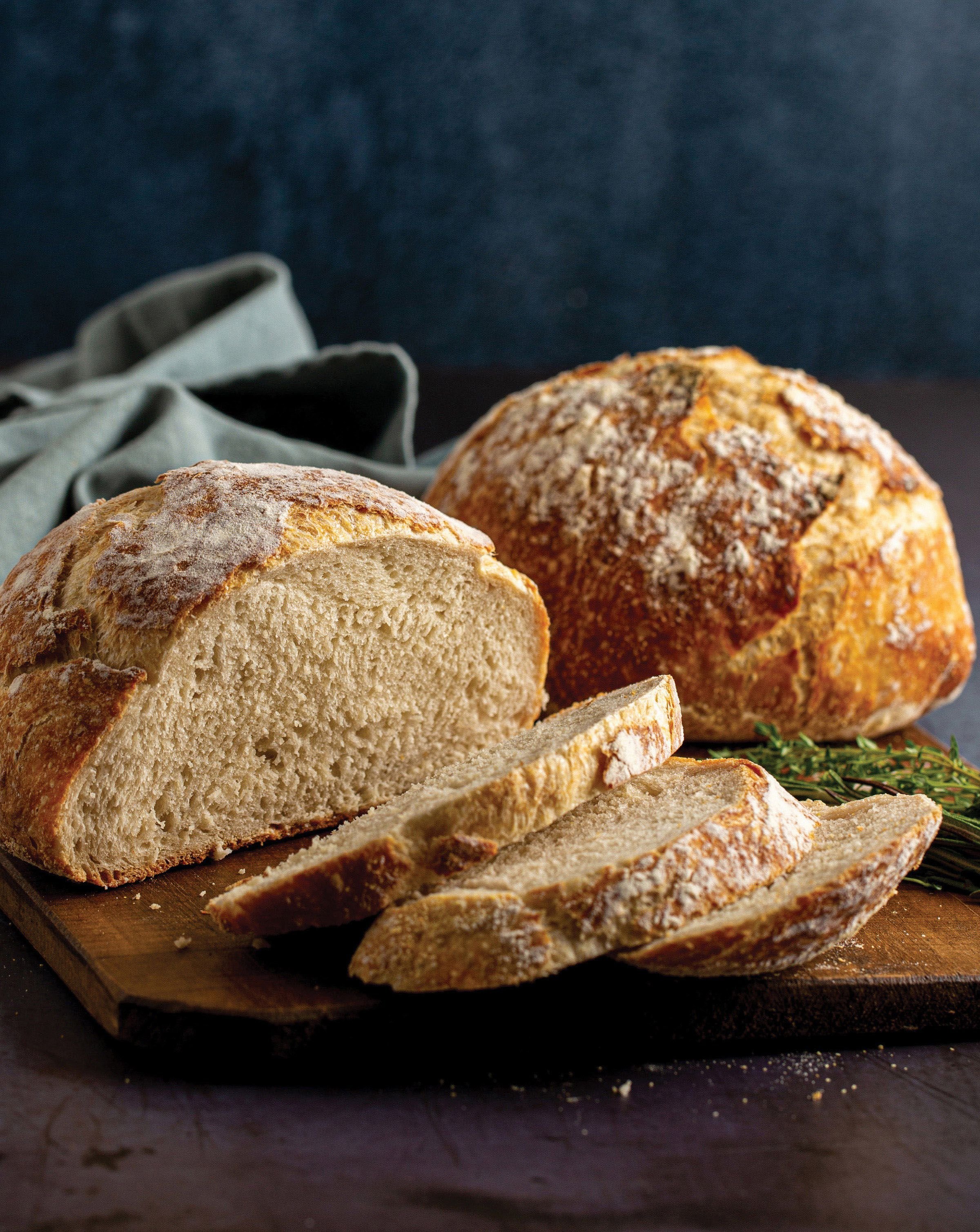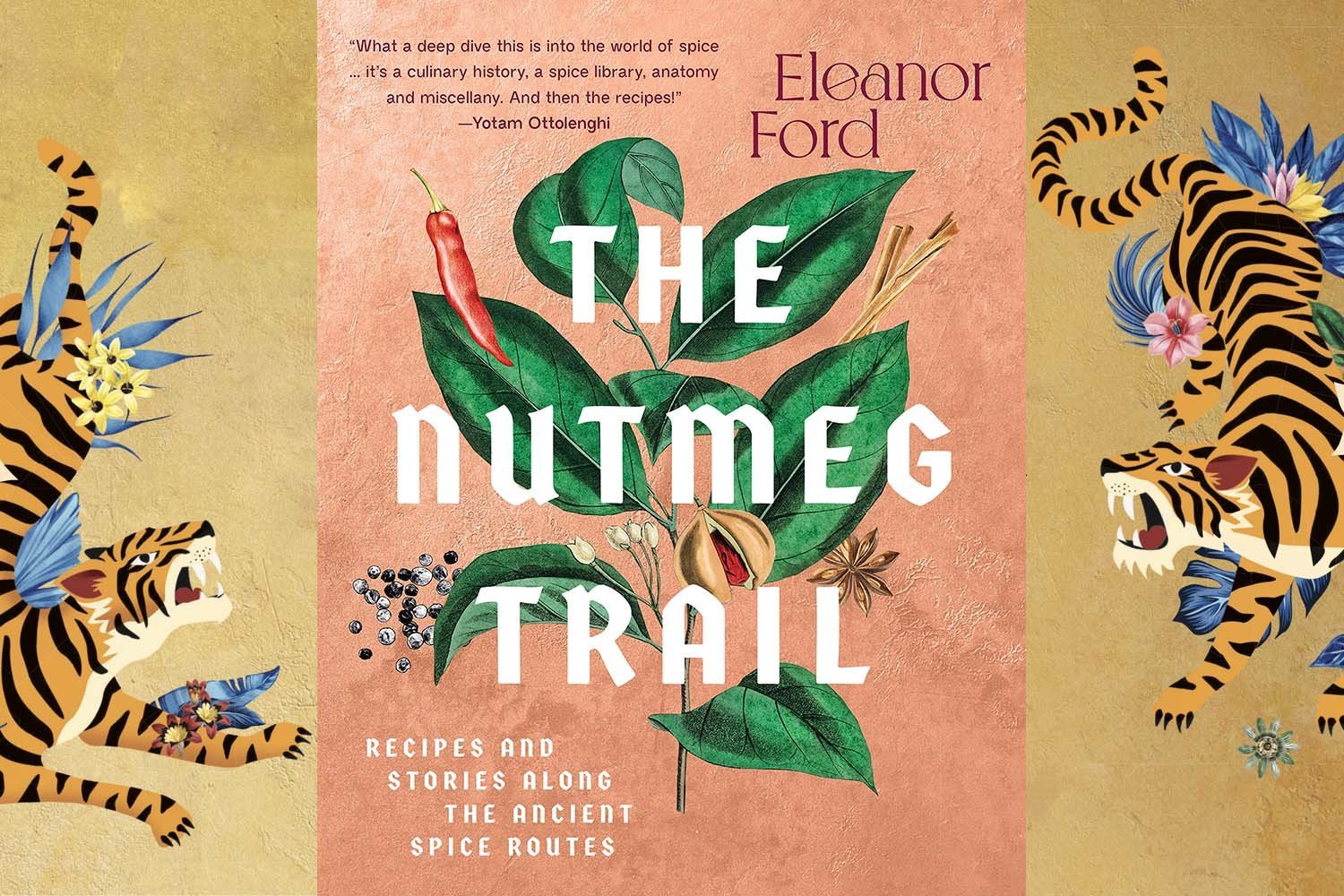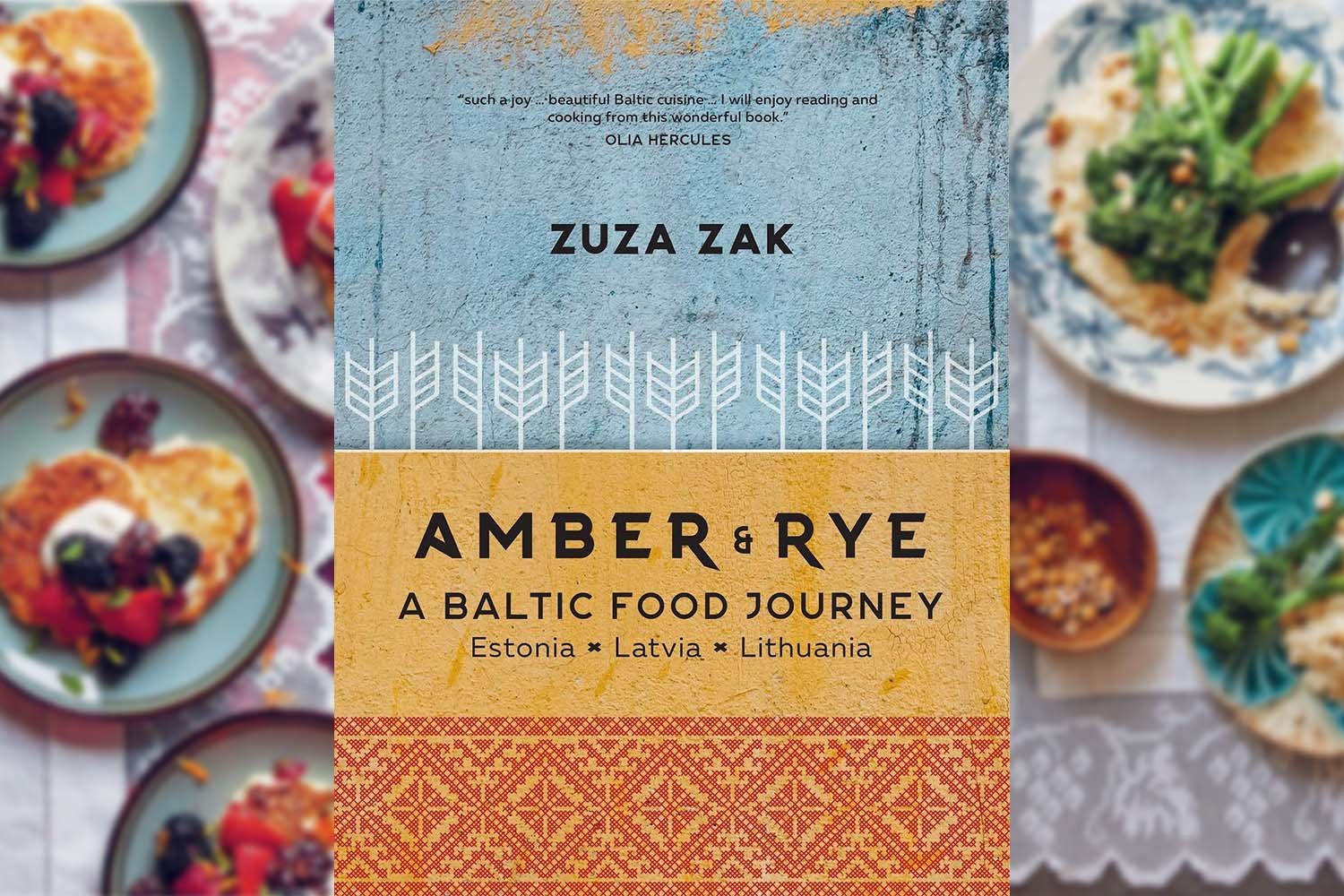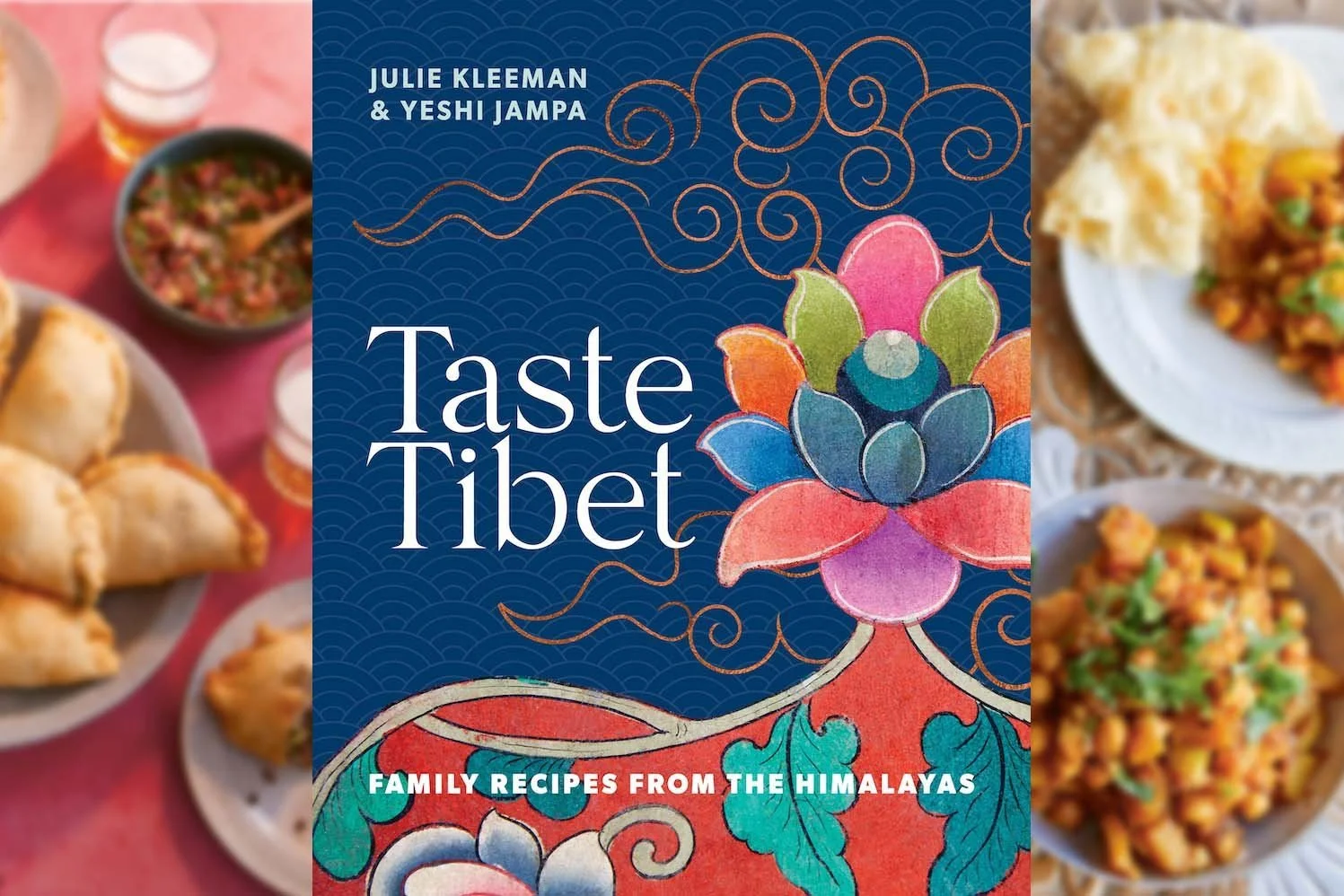Advertisement
Q&A with Kristin Hoffman, author of Baker Bettie's Better Baking Book
2 July 2022 · Author Profile
“I love to teach the classics and empower people with the ability to modify recipes to their own personal preferences.”
Kristin Hoffman, also known as Baker Bettie, is a trained chef and a true baking science geek. She is also the creator of BakerBettie.com, a website and online baking school at which Kristin is the main instructor.
Kristin’s approach to baking is to give students a firm grounding in foundational baking recipes and approachable baking science. She believes that by gaining an understanding of the processes – the ‘hows’ and the ‘whys’ in baking – that students can swiftly gain confidence in the kitchen. Kristin teaches workshops in Chicago and the surrounding areas as well as private classes and corporate events.
Her cookbook, Baker Bettie’s Better Baking Book, was published earlier this year and is now available on ckbk. We asked Kristin about her Baker Bettie alter ego, the rules of baking that can (and cannot) be broken – and we found out why baking disasters are actually a cook’s best opportunity to learn.
Q: Kristin, tell us about Baker Bettie. Is she your alter ego?
Baker Bettie was originally born out of my shyness. I started my blog, BakerBettie.com, in 2011 and at the time I wasn’t sure if I wanted people to know my true identity. I have always had an affinity for the 1950s, so I came up with Baker Bettie because I thought it was catchy while conveying a vintage vibe.
Over the years I have revealed my true identity online and have worked through my shyness. Baker Bettie continues to be my online persona, though she and I are really one and the same. I like to think that Bettie brings a sense of nostalgia to my content and makes it feel more approachable. Many people have memories of their grandmothers making cookie dough in her Pyrex bowl and they have a sense of connection to me when they see me doing the same.
Q: You are from Kansas originally (a place many of us still associate with ‘The Wizard of Oz’!). What are your first food memories from that time, and how did you catch the baking bug? Do any of your childhood recipes appear in your book?
I did grow up in “the land of Oz” in a small town called Hutchinson! Surprisingly, I was completely uninterested in cooking or baking as a kid. I did love to eat, though! My grandmother was a wonderful baker and pie was her specialty. She introduced me to rhubarb at a young age and her rhubarb pie was always my favorite.
There is also a large population of German Mennonite and Amish in the area where I grew up, which heavily influenced the food there. I have fond memories of the local Amish restaurant and their Cinnamon Rolls that are literally as big as your head! The food in the area is very classic and hearty dishes. Things like chicken fried steak, biscuits and gravy, chicken and noodles over mashed potatoes, and Chocolate Cream Pie.
A lot of the recipes in my book and on my website are influenced by this kind of food – good, old-fashioned home baking. I don’t often put a lot of fancy twists on recipes. Rather, I love to teach the classics and empower people with the ability to modify recipes to their own personal preferences.
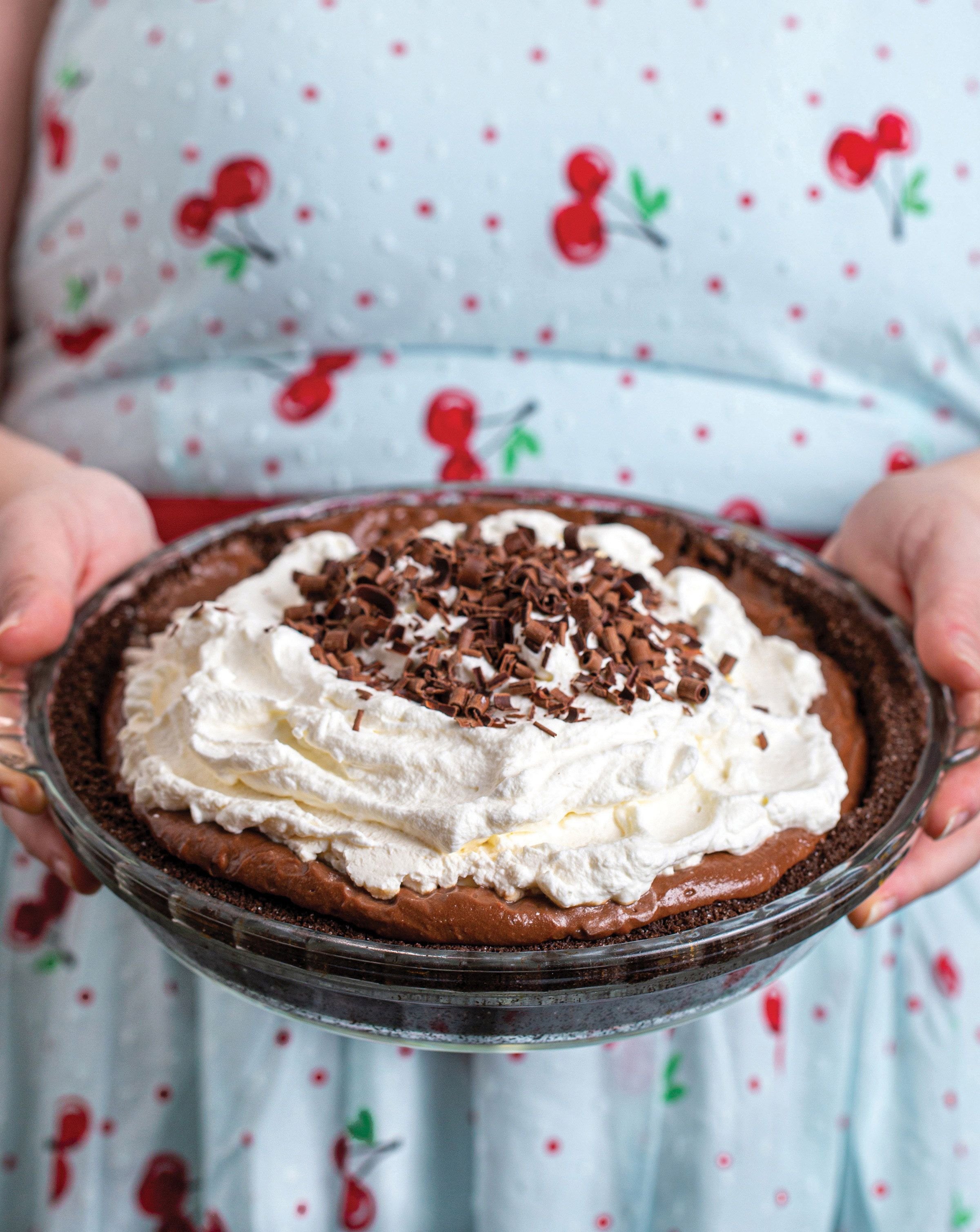
Classic, hearty dishes, such as this Chocolate Cream Pie, are typical of Hoffman’s rural Kansas upbringing.
Q: Where did you train professionally, and what inspired you to take the culinary school plunge?
I originally got my bachelor’s degree in music therapy and worked in mental health for several years once I graduated. At the same time, I had started my baking blog and my interest in food and baking was getting stronger. In 2013 my husband and I decided to move out of Kansas for a job he took in Philadelphia. This major life change motivated me to make a decision about my own career trajectory. I knew I wanted to work in food but wasn’t quite sure in what capacity.
I enrolled in JNA Institute of Culinary Arts in Philadelphia with the intention that I would learn everything I could while I was there, and I would figure out my career later. I knew I didn’t absolutely need to go to culinary school, but I truly wanted the formal education. I loved the experience and soaked up every bit of knowledge I could. I believe it really laid a great foundation for me for everything else that has followed in my career.
Q: Your Baker Bettie website includes baking video tutorials and written tutorials, and you also run live events and online baking courses. Why do you think it was important to also publish a cookbook?
Culinary school was such a revelation for me in my understanding of how baking works. I was constantly saying, “I wish I had a book that taught baking this way when I was first learning!” And I always try to teach from the vantage point of what I wanted to know as a beginner. I can so clearly remember what questions I had and how confusing baking was.
While I love publishing content online, it is also a lot more difficult to organize it in a way that guides people through sequentially. That is the major benefit of the book. I laid it out in the way I would if I were teaching really in-depth fundamentals of a baking class. I encourage readers to go through it from start to finish to learn the subject fully. It also now serves as essentially my own textbook for my classes that my students can reference.
Q: In your book you write, “My goal is to help you build baking confidence through teaching foundational baking techniques, approachable baking science, and classic recipes.” Some people are daunted by science – how do you get across its importance without it sounding intimidating?
Most home bakers don’t want to get bogged down with really in-depth details that get too technical. My approach to teaching baking science is to really break down the ‘whys’ of baking. If I can show what is happening with a technique and why it is important then the nitty-gritty details of what exactly is happening scientifically don’t matter as much.
A good example is when talking about gluten. Gluten is formed when the protein in wheat flour is hydrated. These proteins start bonding together and the more they are worked through mixing or kneading, the stronger they become. It is desirable to encourage gluten development when you want a chewy texture, like yeast bread. But you need to be much more careful and limit gluten development when you want a light and delicate texture, like a cake.
This is plenty of information for a home baker to understand the basic science of gluten without needing to know every intricate detail of how exactly the proteins are bonding and why moisture causes them to do so. I try to provide enough information that is useful and leave out the stuff that isn’t all that necessary for the knowledge to be put to use.
Q: Do you believe there are rules of baking that should never be broken? If so, could you give an example, and explain why?
I actually don’t! I think a lot of people are turned off by baking because it is much more technical and scientific, and they feel like there isn’t as much room to play. However, one of the things that I love about baking is that once you understand the fundamentals well, there is so much room to play. If you understand the rules and their purpose, you are free to break them when it makes sense!
Q: When you were learning to bake, was there a specific recipe or technique that eluded you, and how did you come to conquer it?
In the very beginning of my baking journey, I avoided yeast bread for a long time. I did not understand how yeast worked and it felt very intimidating to me. Once I finally dove in and got a grasp of the process, I fell in love with it. I had to convince myself that even if my bread was bad in the beginning it would get better with practice and more knowledge. I also gave myself time to read up on how yeast works and get a clear understanding of what is happening. This made it so much less intimidating.
Now bread is my favorite thing to teach. I love demystifying yeast and the process of bread-baking. It truly is a magical process with such delicious rewards!
Q: Have there been many disasters along the way? What did you learn in the process?
Goodness, yes! So many disasters! As clichéd as it is to say, they really are the best way to learn. I never let myself have a baking flop without assessing the situation and asking myself what happened. It has taught me more about baking than culinary school or any book ever has.
The biggest thing I have learned in the process is to keep asking “why?” and seek out the answers. Don’t let a baking disaster go to waste. It is your biggest opportunity to learn.
Q: What is the most important piece of baking information that someone has passed on to you? Which best bit of advice would you pass on?
Someone once told me that you can’t automatically be great at something you have never tried before. This has been something I remind myself of constantly when I’m trying to master a new baking skill. I give myself permission to execute it poorly at first with the understanding that I will get better with practice. I think so many of us struggle with being in that place where we aren’t as good at something as we want to be. But if we keep pushing through that phase, we do eventually get to the other side.
Q: Which recipe (or recipes) in the book sum(s) up your personal approach to baking?
All of the recipes in my book are customizable master recipes. This is how I approach baking and how my lessons are always structured. Once you learn fundamental techniques and have some base recipes in your repertoire, you can make endless baked goods. I love showing people how baking works in this way!
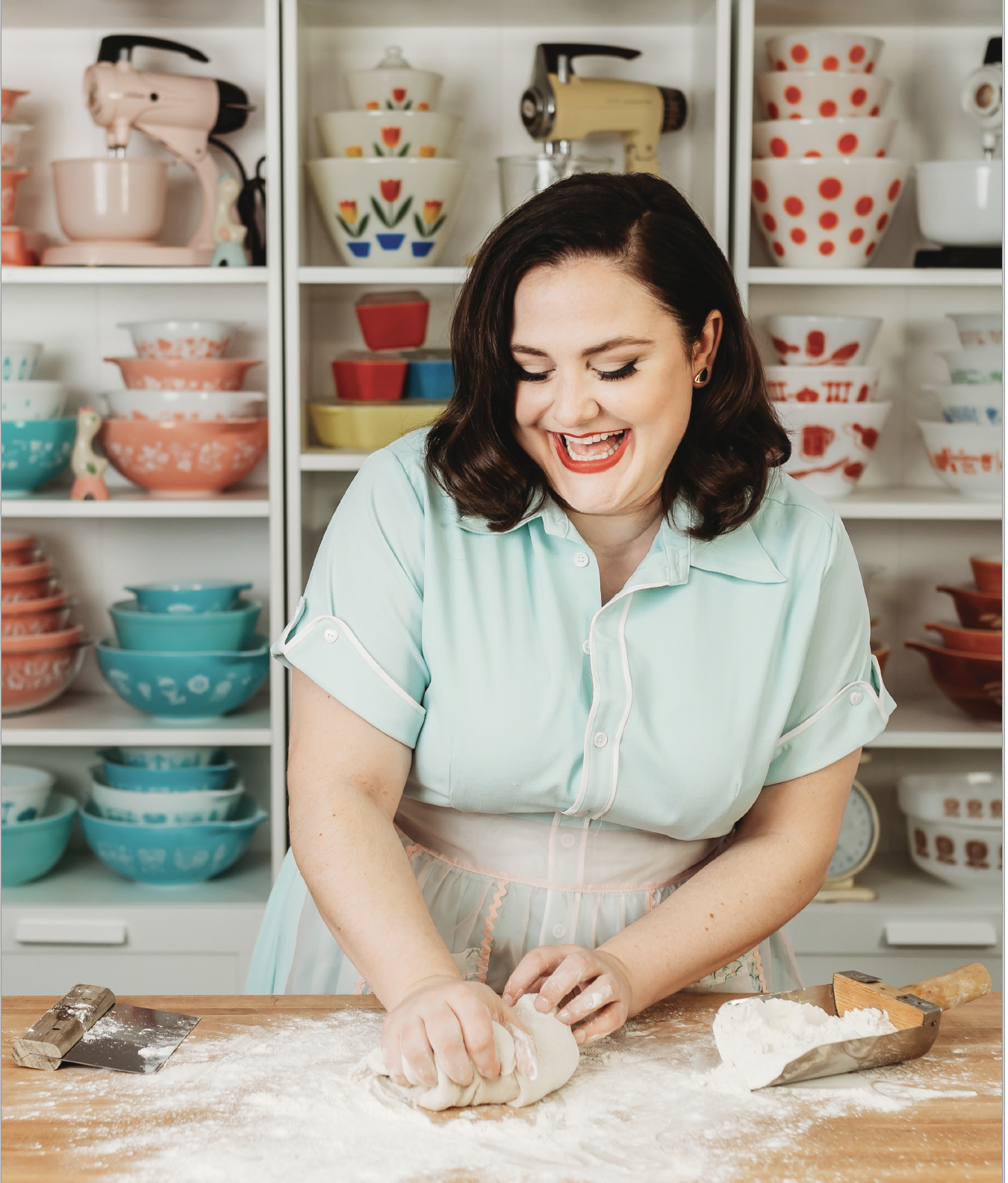
Baker Bettie’s Better Baking Book contains 63 recipes, all available now on ckbk.
Photograph: Lisa Kay Creative Photography.
One of my all-time favorite master recipes in the book is my Lean Dough Master Recipe. It is a very simple yeast bread that calls for four ingredients: water, flour, salt, and yeast. You can then take this dough and use it to make all kinds of things like a Rustic Boule (round loaf), herbed Focaccia, or a crispy Pizza Crust. It is so fun to get creative with master recipes and utilize them in different ways.
Q: Which cookbooks, baking books, or authors have had the most influence on your own baking?
Alton Brown was actually the first person who inspired me to bake with his show ‘Good Eats.’ I was fascinated with his scientific approach to cooking and baking and the way he explained things so clearly. That show really gave me the baking bug and is a huge inspiration for my work.
While I do have a huge collection of cookbooks and read them constantly, my biggest inspirations are dense culinary school textbooks. I have two Culinary Institute of America books, The Professional Chef and Baking and Pastry, and I flip through these the most. They are a wealth of information and instead of being books of only recipes, they cover techniques and topics more fully than most cookbooks. These are the kinds of books that have really helped me connect the dots to how baking works and they have helped me become a better teacher.
Ten recipes to try from Baker Bettie’s Better Baking Book
ckbk Premium Members have digital access to the full content of Baker Bettie’s Better Baking Book on ckbk, including every recipe and photograph.
Sign up for ckbk's weekly email newsletter
Read more about ckbk authors
Advertisement

